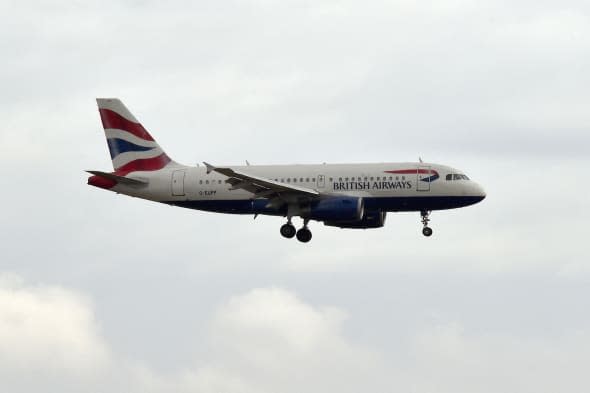Toxic fumes on planes putting passenger lives at risks, warn experts

A coroner has warned that exposure to toxic fumes in plane cabins could be putting flight crew and frequent fliers' health at risk.
According to the BBC, the comments come in a leaked report ahead of an inquest into the death of British Airways co-pilot Richard Westgate, who believed he'd been poisoned by longterm exposure to contaminated cabin air.
Stanhope Payne, the senior coroner for Dorset, said that people regularly exposed to fumes circulating in planes could face "consequential damage to their health".
He has call on the Civil Aviation Authority and BA to take "urgent action to prevent future deaths".
According to the Independent, Payne's report is the first official UK recognition of 'aerotoxic syndrome'. The condition has long been a contentious issue, being denied by some airlines, but blamed by some for the deaths of at least two pilots and other incidents in which pilots have passed out.
Mr Westgate died in 2012, and in his report the coroner says his body "disclosed symptoms consistent with exposure to organophosphate compounds in aircraft cabin air".
According to the Daily Telegraph, the coroner explained that commercial passenger planes have a system that compresses air from the engines and uses it to pressurise the cabin.
But this can malfunction, with excess oil particles entering the air supply. In a confined space, with air recirculated, the longterm effect on frequent fliers and cabin crew can be harmful, he said.
Frank Cannon, the lawyer for Mr Westgate's case, told the Daily Telegraph: "This report is dynamite. It is the first time a British coroner has come to the conclusion that damage is being done by cabin air, something the industry has been denying for years."
Mr Cannon is also acting for around 50 other air crew members allegedly affected by the syndrome, working for airlines ranging from Easyjet to Emirates.
In 2013,a leading toxicologist told the Daily Express that all airlines should fit carbon monoxide detectors, similar to those which we use in our homes, as standard.
Professor Chris van Netten, who is a world authority on bleed-air contamination, has accused airlines of putting profits before the health and safety of passengers and crew.
He says that these monitors could easily detect leaks of carbon monoxide, which is odourless, colourless and highly toxic. If inhaled by pilots it could render them incapable of flying the plane.
The issue of there being no equipment to detect the toxic fumes before it's too late was being aired back in 2012 too. Pilots reportedly have to rely on their sense of smell, and don oxygen masks at appropriate moments.
Dr Susan Michaelis, a former pilot who became the first person to gain a PhD in this area in 2011, is head of research at the Global Air Quality Executive.
She told theExpress: "The industry are so busy denying there is a problem that hey have no time remaining to look at the evidence.
"This is reprehensible conduct at its best. Just imagine if the crew in perhaps one or two of these incidents had not put on oxygen. It could have been a disaster."
Related articles
Holiday plane makes emergency landing in Norwich after 'fumes in cockpit'
Family of five poisoned by barbecue fumes on camping trip in Cornwall







